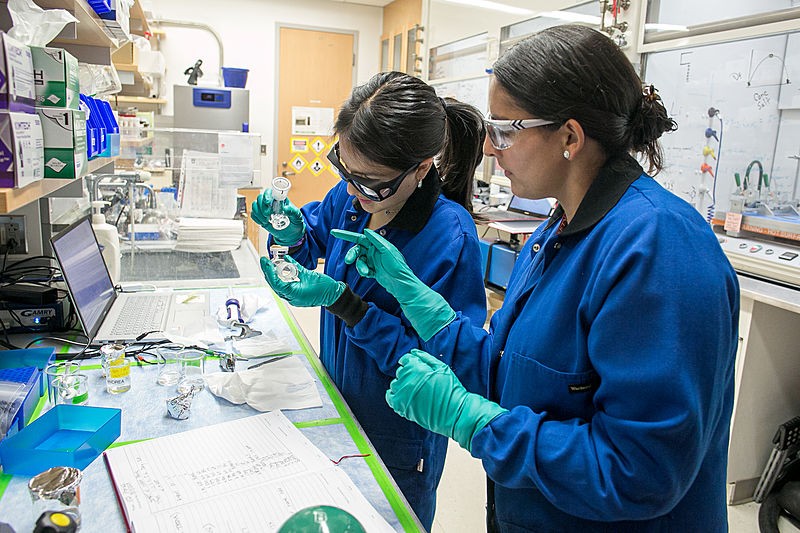Before she started her summer internship on the University of Chicago’s campus, Alexandra Raez knew she wanted to be an engineer but navigating the wide array of established and emerging engineering pathways, particularly as a low-income, first-generation student, felt daunting.
The six-week After School Matters STEM Lab summer research program for Chicago public high school students, led by the Pritzker School of Molecular Engineering in partnership with After School Matters, paired Raez with rising fourth year PhD student Andrea Diaz as her mentor and offered hands-on research experience and college and career readiness support. By the time the internship was winding down, Raez was in the lab helping Diaz upcycle engineered plastic into membranes for redox flow batteries that could potentially support future power grids—and feeling empowered and supported herself.
“I don’t feel as scared [of going to college] anymore, as if everyone is going to be better than me. I feel like I genuinely can contribute to something really big, and I think I am capable of doing stuff that the people I look up to do,” Raez said. “Andrea has taught me not only about science but also about how to be more confident in myself and how to speak up and I think that’s been really great coming from another woman who’s in the field, so it’s been really inspiring to be working alongside her.”
Raez, who lives in the Gage Park neighborhood and attends Walter Payton College Prep, is one of 10 Chicago public high school students who took part in the STEM Lab this summer, working with 11 UChicago mentors across nine campus labs. The internship is designed to have high schoolers be part of authentic research projects and environments, and get insights into how science and engineering researchers work in an innovative, collaborative environment, as well as valuable experience for competitive college applications.
“It is an opportunity to step into the day-to-day life of a STEM researcher, to carry out a research project with the support of dedicated research mentors, a chance to develop professional skills like science communication and networking, and an opportunity to immerse high schoolers in authentic research spaces at UChicago,” Laura Rico-Beck, Assistant Dean of Education and Outreach at the Pritzker School of Molecular Engineering, says.


